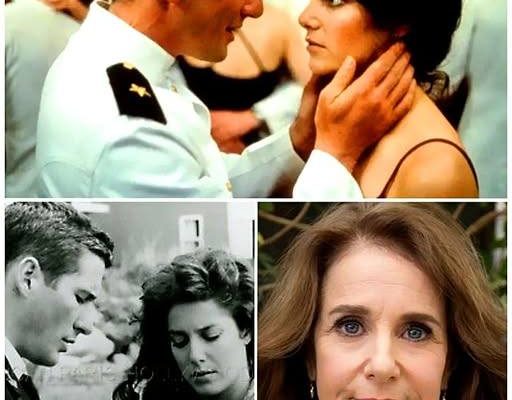🚨Behind the Camera: The Turbulent Romance Between Debra Winger and Richard Gere in ‘An Officer and a Gentleman’ (1982)
During a break between takes on the set of “An Officer and a Gentleman” (1982), Debra Winger reportedly walked off after an argument with Richard Gere, muttering that he was nothing more than a “brick wall.” This incident, while unremarkable to onlookers at the time, symbolized the tension-filled relationship between the two stars. Yet, when the cameras rolled, their characters, Paula Pokrifki and Zack Mayo, radiated an intensity that would define one of the most iconic romances in film history.
The journey to create this on-screen magic was anything but smooth. Winger, an actress celebrated for her emotional depth and naturalistic performances, brought a fiery authenticity to Paula a woman who refused to be defined by the limits of her factory-town existence. Gere, who had already established himself as a rising star after “American Gigolo” (1980), approached the role of Zack Mayo with calculated intensity, portraying the character’s transformation from a cynical loner to a man capable of love and vulnerability. Their clashing personalities off-screen mirrored the push-and-pull dynamic between their characters, and this undercurrent of tension gave their performances a sharp, compelling edge.
Director Taylor Hackford played a significant role in amplifying this chemistry. Known for his demanding style, Hackford pushed both actors to their emotional limits, often creating an atmosphere that heightened the tension between them. One pivotal scene, where Zack confronts Paula in a motel room after realizing the depths of her feelings for him, required Winger and Gere to channel raw vulnerability. According to crew members, the scene’s intensity wasn’t just acting both actors were emotionally drained after hours of shooting, with Hackford refusing to settle for anything less than perfection.
Off-screen, however, the working relationship between Winger and Gere was strained. Winger, outspoken and unapologetically blunt, was unafraid to challenge her co-star’s approach to scenes or even voice her frustrations directly. Gere, more reserved and introspective, often responded with silence, which only fueled the tension. Winger later described Gere as “a brick wall,” while Gere admitted in interviews that working with Winger was challenging but worth it, as her performances elevated his own.
This clash extended beyond their interactions with each other. Winger frequently questioned Hackford’s direction, particularly when it came to Paula’s motivations. She reportedly fought to ensure Paula wasn’t portrayed as just a love interest but as a fully realized character with agency and ambition. Winger’s insistence on authenticity made Paula a standout character, resonating deeply with audiences. Gere, meanwhile, focused on Zack’s internal struggles, delving into the character’s trauma and loneliness. The juxtaposition of Winger’s fiery presence and Gere’s stoic demeanor created a dynamic that felt as real as it was intense.
The production itself was a grueling experience. The film was shot in challenging conditions, with many scenes filmed on location in Port Townsend, Washington. The rigorous physical demands placed on Gere, who had to endure authentic Navy-style training sequences, mirrored Zack’s journey in the film. Similarly, Winger’s portrayal of Paula required her to embody both resilience and vulnerability, balancing the character’s tough exterior with her deep longing for a better life. Both actors poured themselves into their roles, despite their personal differences, resulting in performances that felt visceral and genuine.
One of the film’s most memorable moments the climactic scene where Zack carries Paula out of the factory almost didn’t happen the way audiences remember it. Hackford initially envisioned a more subdued ending, but it was rewritten to give audiences the romantic payoff they craved. Winger and Gere filmed the scene after weeks of tension on set, yet their chemistry in that moment was undeniable. Winger’s genuine laughter as Gere lifts her, combined with the triumphant musical score of “Up Where We Belong,” created a cinematic moment that continues to resonate decades later.

